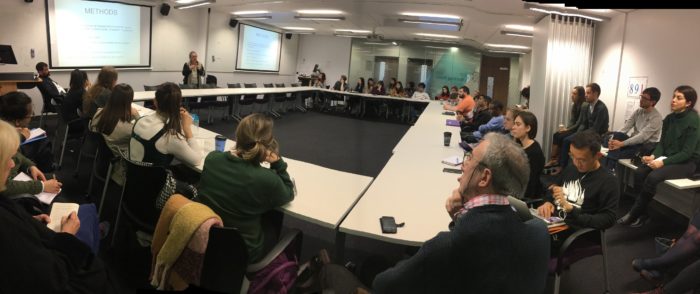‘Bauman and Refugees – Biography and Writing’

Izabela Wagner-Saffray (Institute of Sociology, Warsaw University) delivered a fascinating paper - entitled 'Bauman and Refugees - Biography and Writing' to a packed room as part of the School of Sociology and Social Policy research seminar series.
After an unprecedented one million refugees and migrants arrived in Europe, Zygmunt Bauman published Strangers at Our Door. His analysis of the ‘migration panic’ phenomenon helps to understand processes occurring between ‘strangers’ and ‘us’. Wagner-Saffray argued that Bauman sketches a pertinent and persuasive socio-political model of reacting to migration, but without ever drawing upon his own biographical experience as a refugee. Instead, he relies upon texts by philosophers, psycho-sociologists, sociologists and journalists as well as politicians. Yet, she argued, a closer reading of the book also shows discrete traces of his life story.
Many do not remember that Bauman belonged to the category of ‘refugees’ twice. First, as a teenager, with his parents he fled a Poland occupied by Nazi Germany and thereupon experienced the status of ‘a foreigner’ in the USSR (1939-1944). Second, in 1968, Bauman, his wife Janina and their three daughters were expelled from Poland due to the government’s anti-Semitic policy, meaning the whole Bauman family became ‘stateless people’. During the majority of his lifetime, Bauman belonged to the category of ‘the other’, being stigmatized and discriminated against.
Wagner-Saffray argued that we must read Bauman's sociology through this lens of his biographical experience as a 'refugee' if we are fully to understand its meaning and importance.
